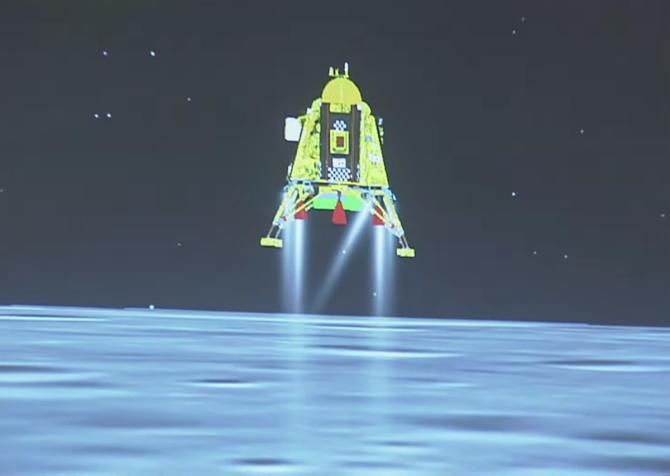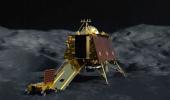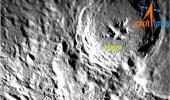India has reached where no nation has gone before.

In a giant leap for its space programme, India's Moon mission Chandrayaan-3 touched down on the lunar south pole at 6.04 pm on Wednesday, propelling the country to an exclusive club of four and making it the first country to land on the uncharted surface.
With this touchdown on Moon to script history after a flawless 41-day voyage and less than a week after a Russian lander headed to the lunar south pole crashed, India has become the fourth country to master the technology of soft-landing on the Moon after the United States, China and the erstwhile Soviet Union.
But no country has ever landed a rover on the treacherous south pole that scientists believe could hold important reserves of frozen water and precious elements.
Russia's Luna-25 spacecraft that was headed to the lunar south pole weeks after the launch of the Indian mission on July 14 crashed into the Moon on Sunday after spinning out of control.
Taking a billion dreams to the Moon in India's second attempt in four years, Chandrayaan-3's four-legged lander Vikram with the 26-kg rover Pragyan in its belly, made the soft landing near the south polar region of the Moon as per plans successfully negotiating what ISRO scientists described as the '20 minutes of terror' during the powered descent initiated at 5.44 pm.
As scientists at the Mission Operations Complex (MOX) of the Indian Space Research Organisation(ISRO) in Bengaluru broke into celebrations and flashed victory signs, Prime Minister Narendra Modi said India is now on the Moon and the success belongs to all humanity.
Addressing ISRO scientists virtually from Johannesburg where he is attending the BRICS summit, Modi said India made a resolve 'on the Earth and fulfilled it on the Moon'.
"This is a moment to cherish forever."
"India is now on the Moon and now is the time to walk on the 'Chandra Path'," the prime minister said.
"We are witness to the new flight of new India. New history has been written."
Chandrayaan-3 is a follow-on mission to Chandrayaan-2 and its objectives are to demonstrate safe and soft-landing on the lunar surface, roving on the moon, and to conduct in-situ scientific experiments.
Chandrayaan-2 had failed in its lunar phase when its lander Vikram crashed into the surface of the moon minutes before the touch down following anomalies in the braking system in the lander while attempting a landing on September 7, 2019.
Chandrayaan's maiden mission was in 2008.
ISRO Chief S Somanath said the success of Chandrayaan-3 gives Indian space scientists the confidence to undertake more challenging future missions.
"We have achieved soft landing on Moon. India is on the Moon," he minutes after ISRO achieved the feat that was broadcast live.
The Rs 600 crore Chandrayaan-3 mission was launched on July 14 onboard Launch Vehicle Mark-III (LVM-3) rocket, embarking on a more complicated 41-day voyage.
The lander and the six-wheeled rover (with total mass of 1,752 kg) are designed to operate for one lunar daylight period (about 14 Earth days).
The lander had multiple sensors to ensure a safe touchdown, including an accelerometer, altimeters, Doppler velocimeter, inclinometer, touchdown sensor, and a suite of cameras for hazard avoidance and positional knowledge.
The lander carries the rover in a compartment with a ramp for deployment onto the surface.










